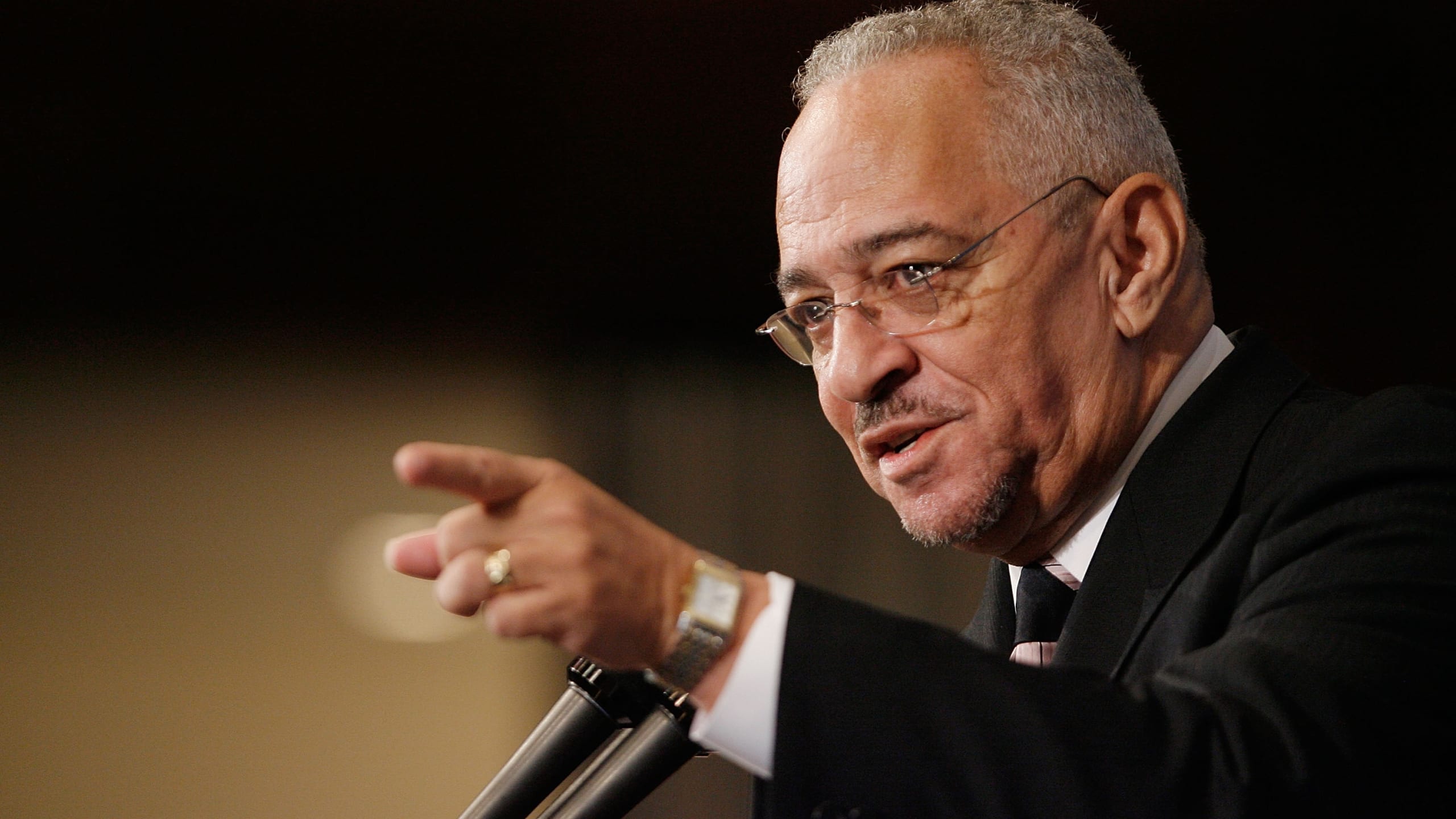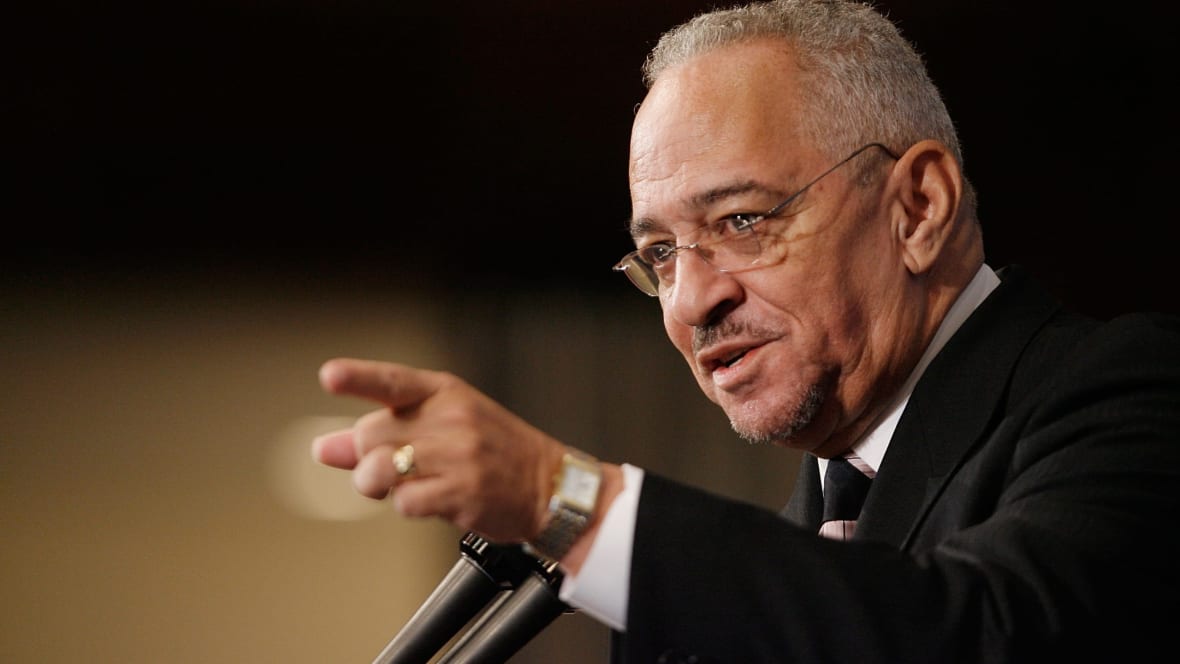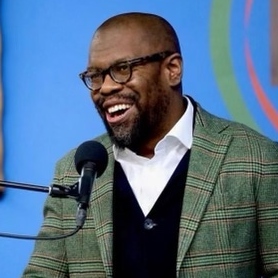Notes on faith: Can the U.S. be saved? The Black prophetic voice holds the hope of true liberation
In pressing times like these, Rev. Calvin Taylor Skinner reflects on how the Black prophetic voice continues to provide guidance. The post Notes on faith: Can the U.S. be saved? The Black prophetic voice holds the hope of true liberation appeared first on TheGrio.

In pressing times like these, Rev. Calvin Taylor Skinner reflects on how the Black prophetic voice continues to provide guidance.
“Notes on faith” is theGrio’s inspirational, interdenominational series featuring Black thought leaders across faiths.
On this Independence Day weekend, our nation needs deep reflection and renouncement. Just as gifted songstress Nina Simone once expressed her contempt for the damnable hypocrisy that permeates our nation in the protest song “Mississippi Goddam”:
I can’t stand the pressure much longer
Somebody say a prayer

There is chronic fatigue that accompanies being Black in America, having to consistently and repeatedly confront the reality that our country will seemingly go out of her way to disappoint us. Understandably, that fatigue often leads to a disavowal of patriotism as we question our allegiance to a country that has not stood by us.
In short, we are tired.
When I think about the intentional policies that push my people into poverty, I am tired.
When I think about the overrepresentation of our brothers and sisters in prison compared to the underrepresentation of our people in higher education, or our inability to obtain adequate housing or jobs with living wages, I am tired.
When I think about the fact that it is 2023 and Black people are still struggling to receive equal protection under the law in these Divided States of Amerikkka, I am tired.
In these pressing times, we can feel tired and hopeless, as though this nation cannot be saved or is not worth saving. Yet, even when this struggle seems unbearable, we can find hope through the Black prophetic canon, as thinkers from Frederick Douglass to Rev. Jeremiah Wright’s focus on our Divine Creator’s intentions for oppressed peoples outweighs all else.
Many recent legal decisions, including the Supreme Court’s rulings on affirmative action and LGBTQ+ protections, affirm we are on a dangerous, damnable path of destruction, past the point of saving. When I use the language of “saving” or “salvation,” I mean it in a way that speaks to our deliverance from the danger of what is an invented pillar of this nation: systemic racism.
In a 6-3 decision for the University of North Carolina and a 6-2 decision in the case for Harvard, SCOTUS determined that American colleges and universities can no longer take race into consideration when factoring admissions. In a rare occurrence, Clarence Thomas, who voted against defending the Voting Rights Act only weeks earlier, read his concurring opinion from the bench in what many African Americans experienced as a peak ritual of internalized racism, the sunken place of self-destruction. This nation’s continuous maintenance of its racist nature positions us for an implosion that could take place any day.
In a 2022 discussion with theGrio, attorney Sue-Anne Robinson said, “Affirmative action was always about giving qualified people opportunities because of the inequality created by historical systemic racism and sexism.” Not only does the Court’s decision scoff at the moderate progress made to address the inequities of opportunities for marginalized people, Thomas had the internalized Causacity to speak from the bench in support of the ruling when he himself shared in a 1983 speech that affirmative action is “critical to minorities and women in this society.”
Above all else, not only have white women greatly benefited from affirmative action in benefits like small business programs, but we also know affirmative action programs such as legacy admissions (which greatly benefit white men) will remain in place through college admissions. And then there is Chief Justice Roberts’ footnote that military academies will be exempted from the majority opinion. Make it all make sense.
Oh, I forgot: When it comes to these sorts of maneuvers in America, things don’t have to make sense.
Justice Sonya Sotomayor noted in her dissent that “the Court’s opinion is not grounded in law or fact and contravenes the vision of equality embodied in the Fourteenth Amendment.” As a public theologian rooted in social justice, I also see the moral implications of this decision. The current movements to uphold and further empower racial inequity through actions like the SCOTUS decision beg the question: Can America be Saved? I turn to Black prophetic voices to provide a framework of hope.
In the spiritual tradition of “Mississippi Goddam” and Frederick Douglass’ “What to the Slave is the Fourth of July?” (1852), Rev. Dr. Jeremiah Wright’s iconic sermon, “Confusing God and the Government” (2003), infamously known as the “God Damn, America” sermon, is worth a similar hearing/reading as well.
Drawing from Luke 19:37-44, the message — excerpts of which wrongly were used to demonize Rev. Wright during Obama’s 2008 campaign — addressed society’s conflation of God and government. However, if we can intently listen to the truth spoken through his message, it offers a path to salvation. A gifted preacher, theologian, musician, and military veteran, I believe Wright’s voice guides us in answering the question of America’s salvation.
Written in the direct genealogy of Douglass’ speech, the sermon highlights the hypocrisy of our nation, spoken in the Black prophetic tradition that elevates oppressed and marginalized peoples’ power. Like Douglass, Wright, now pastor emeritus of the Trinity United Church of Christ in Chicago, understands and conveys that until the true liberation of oppressed and marginalized people occurs, this nation will continue to impede life, liberty, and true justice for all in these Divided States of America.
What makes the removal of affirmative action both unpatriotic and immoral is its exclusion of the basic principles of equality in this nation. Additionally, it is essentially immoral in its dismissal of any notion of contrition for the historic and well-documented violence and enduring suppression enacted against African, Indigenous, and marginalized people in this nation.
Douglass warned of America’s nascent failings when its founding fathers claimed African descendants of this land were not considered fully human under the Constitution — a belief that still reverberates today through the Electoral College. Wright echoed a very similar sentiment in his message, noting that the U.S. has deliberately failed its citizens of African descent by “…put[ting] them out of equal protection under the law, [having] kept them out of their racist bastions of higher education and locked them into a position of hopelessness and helplessness.”
These messages are not only prophetic but an indictment of the hypocrisy of a government that condemns tyranny on other shores while perpetrating the same actions on its most vulnerable citizens.
My hope lies in Douglass’s estimation that “The arm of the Lord is not shortened” and “the doom of slavery is certain.”
Further, as Dr. Wright puts it, we can find confidence in the affirmation that “Where governments fail, God never fails.”
So when I ask if America can be saved, even under the siege of the questionably lawful decision of SCOTUS, be confident that God never fails. The doom of continuing disinheritance will be handled. Let us not give up. Like the Black prophets and ancestors before us, we must push toward true justice. We must press toward true liberation. We must press toward true equality. We cannot give up.
“God never fails!”

Rev. Calvin Taylor Skinner is dedicated to empowering frontline communities in Knoxville, Tenn. and the United Kingdom. He uses faith and policy to address energy justice, criminal justice reform, voter education/mobilization, electoral politics, and global affairs. Along with his wife, Rev. Dr. Alisha Lola Jones, they lead InSight Initiative, a consulting firm focusing on capacity building and live events production.
TheGrio is FREE on your TV via Apple TV, Amazon Fire, Roku, and Android TV. TheGrio’s Black Podcast Network is free too. Download theGrio mobile apps today! Listen to ‘Writing Black‘ with Maiysha Kai.
The post Notes on faith: Can the U.S. be saved? The Black prophetic voice holds the hope of true liberation appeared first on TheGrio.








![Stream: Lizzo’s ‘My Face Hurts from Smiling’ Mixtape [featuring SZA & Doja Cat]](https://150893825.v2.pressablecdn.com/wp-content/uploads/2025/06/lizzo-thatgrapejuice-sza-doja-cat-face-smiling-hurts-mixtape-2025.jpg)



